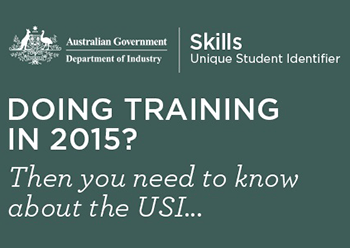The USI and Reporting Requirements
Each time your students complete nationally recognised training, you must collect and verify their Unique Student Identifier (USI) before you can confer a qualification or statement of attainment. When you submit your data according to the new VET data collection...
Clauses 1.1 – 1.4
What this Standard means for your RTO – The Australian Qualifications Framework (AQF) is the national policy for qualifications in the Australian education and training system. The National Vocational Education and Training Regulator Act 2011 requires that RTOs comply with the...
ASQA’s Identity Crisis
The Standards for Registered Training Organisations (RTOs) are a set of principles designed to shape the unique characteristics of an RTO. Their application is paramount to safeguard the integrity of nationally recognised training. These Standards are not steps, formulas or...
Training Package Development Under Review
In September 2014, the Minister for Industry, the Hon Ian Macfarlane MP announced that, at the end of the current contract period with Industry Skills Councils, the Australian Government would be moving to a more contestable model for the development...
RTO Re-registration with ASQA
Registration or re-registration with ASQA is a rigorous process where the RTO must demonstrate compliance with the VET Quality Framework. Registration is the most critical risk that an RTO has to manage. This Master Training Program is a three-day workshop...
VET Reform – Insources’ Contribution
VET Reform – Our Position Do we need VET Reform or continuous improvement? The short answer: we need VET Reform. But what we really need is a continuous improvement approach to the VET system. The first image that comes alive...
The Right Direction for Competency
The integrity of our vocational education and training (VET) system rests basically on three pillars: the competency standards, the quality of our training and assessment practices, and the capacity to add value to stakeholders with our training proposal. Having a...
TAE Review
Last chance to have your say about the review of the TAE Training & Education Training Package IBSA has completed its initial consultations and has developed the second round of draft materials for validation. This is your last chance to...
Planning for Effective Evaluation
Evaluation, like everything else in life, takes careful planning to reap what one sows. The need to plan an evaluation before conducting it has always been recognized, but the scope and complexity of evaluation projects today demand even better planning...
Introducing the Core Skills for Work
In August 2013, the Australian Government released the Core Skills for Work Developmental Framework (CSfW). It provides a mechanism for training package developers, curriculum writers and those who develop standards and learning and assessment resources to more clearly articulate the employability...








